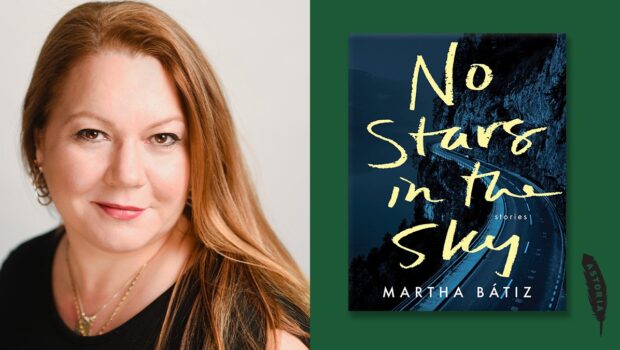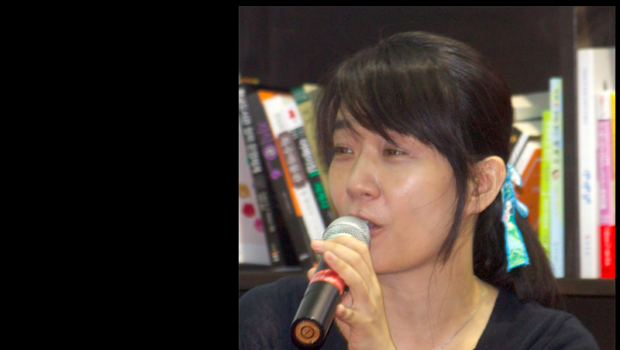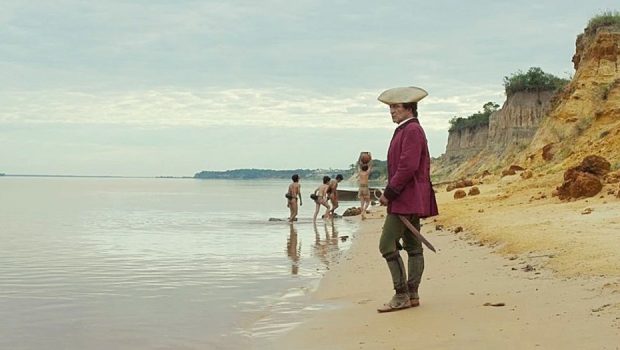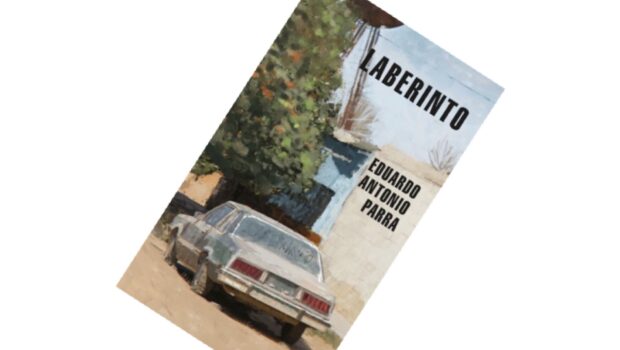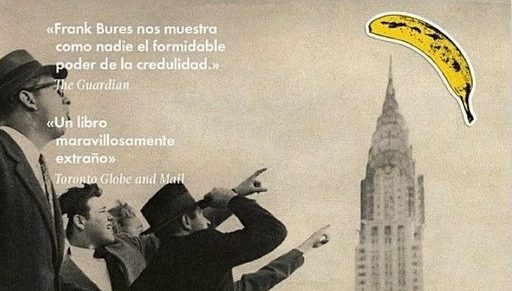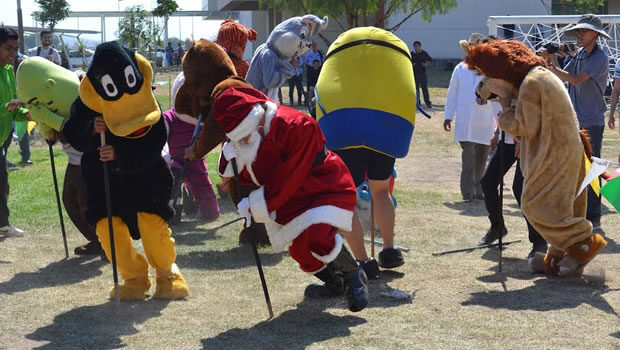Return
El regreso
Adriana Díaz Enciso
Return, by Adriana Díaz Enciso
***
Among the avalanche of images and words that testify to a world racked by violence, uncertainty, multiple forms of madness and all the imaginable faces of danger as the year came to a close, those no less ominous bred by our conjectures stuck their head out: how much worse things can get as soon as 2025 gets going, with the return of a certain individual to the presidency of the United States.
An empire’s decadence has never been clearer than in Donald Trump’s accession to power, first in 2017, and for the second time this January. Those of us who haven’t yet lost our mind completely writhe between the sensation that what we’re witnessing is impossible, delirium, hallucination, and the suspicion that we couldn’t expect otherwise. The empire’s decadence was already well under way by the time I arrived in this planet, 60 years ago, and most nations have done all they can to ignore it. Because it’s the most powerful country, perhaps; because whatever pertaining to that empire that touches us all includes its decadence, and it is difficult to detach ourselves from what we are; out of convenience, out of indolence, out of impotence, and we could spend the whole day enumerating the reasons, which have already been, and still are, minutely examined by thinkers and analysts.
Now, the only thing we know for sure is that the unthinkable has happened again, even though this time it was even more unthinkable than eight years ago, and that once more the said individual won the elections. After the initial shock (the fear, anger and dejection), what can we do?
It goes without saying that I’m not a political analyst. As I have acknowledged when I’ve written about other current affairs, there is little I can add to the experts’ haemorrhage of words brooding over this and other painful matters. I have, however, a public voice, and I’m fortunate to have spaces where it can be heard, such as these virtual pages, for the existence and generosity of which I’m deeply grateful. As an inhabitant of this planet, I see what happens to us—from the standpoint of imperfect objectivity that is the fruit of closeness; it’s not easy to judge our own times—and I ponder; I think that I have the obligation to affect, in my humble measure and by the means in my power the construction of a better world. That is, a better present and a better future. Since the only means I’ve ever had any power on are words, I write.
However, there are moments when it’s arduous to know what to write, because we must first find out what we think. That this man will be the president, second time over and more emboldened, of the most powerful nation in the world, with all the threats this entails and that we can’t stop listing, stirs in me the urge to run away as fast as I can (but where to?) rather than the equanimity necessary for a coherent reflection.
I’ve written before in these pages about other recent elections: those in Mexico, where I was born, and those in the United Kingdom, the country where I live. It seemed important to me then to contribute whatever I could to collective reflection, but I also voted in both elections—and this matters—thus fulfilling my most elementary duty as a citizen. In the American elections, though most of us in the planet are often very worried, or terrified, with the exception of that country’s population, we cannot vote. We’re only witnesses, and the sense of impotence is undoubtedly abysmal.
I wonder then whether this is a good opportunity to calibrate the balance between the public and the intimate voice, and listen carefully to what the latter has to say.
…
On the 6th of November, when the results of the American elections reached the United Kingdom, I was in Tynemouth, a tiny town facing the North Sea. The bed and breakfast was almost across the priory and castle, imponent in the manner of every ruin of past grandeur—offering to the human gaze the mirage of their ancient majesty, and the even more imperious dominion of time, that strips everything away.
Two thousand years of history have left their mark in Tynemouth’s headland, but the ruins that we now see go mostly back to the Middle Ages. The priory was then protected with fortifications, like a castle, and after the Dissolution of the Monasteries at Henry the VIII’s rapacious hands, given its strategic position on the river Tyne’s mouth, the headland remained as a fortress up to 1956. Now it is a historic site preserved by English Heritage; that is to say, it has become, mostly, a tourist attraction, a probably even more devastating fate, given the erosion of meaning, than the progress of time itself. It is still an image of haunting beauty, day or night.
The Romans were there, and there are traces of an Iron Age settlement. We know of two kings of Northumbria who are (perhaps) buried there, Oswine and Osred II, from the 7th and 8th centuries respectively. Osred probably sponsored the first monastery, which suffered multiple foreign raids during the 9th century, when it finally succumbed. There’s nothing intelligible left of it beyond a few Anglo-Saxon crosses discovered on the grounds, which must be now in some museum. A monk called Turchil founded a new monastery in the 11th century, which then became part of a priory subordinate to St Albans, also fortified. During the following centuries the priory prospered, despite the many intrigues and political setbacks. It acquired more land and built what we assume must have been splendid constructions. Nevertheless, it was cold, perched as it was on top of the cliff, and some say that, because of that, it was also the destination of rebel monks who were sent there as a punishment.
The constant threat of a war with Scotland meant that throughout the Middle Ages Tynemouth was continually garrisoned. Kings came and went, all of them keen on strengthening the priory’s fortifications, and in the 14th century the gatehouse was built, as solid as a castle’s. Its skeleton is still standing, though now fragile, along some of the walls. Monastic life in Tynemouth ended in 1539, a victim, as mentioned above, of the Dissolution of the Monasteries, and King St Oswine’s shrine was destroyed. The priory gave way to a military base as a strategic site during yet another war with Scotland, a result of Henry the VIII’s failed attempt to force the marriage between his six-year-old son Edward and six-month-old Mary Stuart, Queen of Scotland. Later, in the 17th century, the fortifications served the Royalist cause during the Civil Wars, until Tynemouth succumbed to the Parliamentary forces in the Battle of Marston Moor, and they became useful again during the early 19th century, as arsenal and defence during the threat of a Napoleonic invasion. They stood throughout that century, protecting the river’s mouth. They were also an important military and defence base in the 20th Century, during the two World Wars.
In 1956 the army finally came out of Tynemouth (but it may come back, some army of this or that faction, in unfathomable times to come), and many of the new military buildings were dismantled in order to exhibit the priory and castle’s ruins as a historic monument. Namely, as that mirage I was talking about at the beginning of these notes, shimmering in the light, of something that was and is no more.
And that is why I’m telling you, in a nutshell, this whole story about some ruins on some headland on the North Sea. So that we wonder whatever became of all the illustrious, infamous or anonymous people who were part of that story, and how through the centuries the resonance of all those events gradually dissolved, though, at the time, they were considered as utterly and vitally important.
…
On the morning of November the 6th, 2024, as I was saying, I was in Tynemouth. I saw the ruins only from outside, walking around them, since the site had just been closed for the winter season. Like that, visible but inaccessible, they were much more present and, at the same time, more ghostly. I refused to read the news. Later I would, inevitably, get to know the results of the American elections, but I didn’t want to ruin the day. B. and I went for a walk down the beach, all the way to Cullercoats, a nearby town. A languid pressure front had overcast the sky for several days, but that morning the sun broke surreptitiously through the clouds. It didn’t show its face overtly, but it opened up shifting pools of golden light on the sand.
Through the whole morning I forgot about any threat; I forgot about Trump, about politics, about all politicians. The only reality was our walk on the beach, in that light, in that subtle breeze and the cold; the other people walking with their countless dogs; the rocks and the sea, with its murmur. Later, on our way back to Tynemouth, anxiety returned for an instant: who had won the elections?, I wondered, and I didn’t want to even formulate the question out loud. Still, I wondered in silence—if the worst had happened (and it had), what could a Mexican writer in England do to stop a dangerous madman, invested with power as the president of the United States, from wrecking the planet. The answer was, as it was to be expected: less than nothing.
I then saw in the distance the silhouette of the priory’s ruins. I thought of those kings, whose names have been forgotten by almost everybody; of their remains, once buried there, though it isn’t at all clear to me whether they’re still there or their very dust has been lost. I thought of the wars, the cannons’ smoke, the searchlights, and much earlier, the monks’ prayers, a now unintelligible whisper that has long ago blended with the sea’s. One day, Donald Trump’s remains will be contained in what, it’s only to be expected, will be a rather golden, gaudy mausoleum in extremely bad taste, but the day will also come when nothing will remain of that mausoleum, and no one will know the whereabouts of those bones. The same, it goes without saying (with the exception, thank goodness, of the mausoleum) will happen with the bones and dust of all of us. Right now, a large part of this planet’s inhabitants is depressed, stunned and terrified, and with good reason. And this, too, shall pass.
That November day, on the beach, I thought it was necessary—pressing, in fact—to formulate a deeper question. How can we face with dignity and courage the moment in history that, most randomly, has been our lot to live in? And how do we face our transience? How, without losing a fundamental form of faith in life? Which, at that moment, took in me the form (it’s hard to explain) of faith in the reality of our steps on the beach, of the sand dancing in the wind, of that strangely gilded light, of the sea, of our joy, of B. alive beside me and I, alive too, awake. Because all that was real too, bearing the same dose of reality once held in every single moment lived by the innumerable actors involved in Tynemouth’s history and the builders of those imposing constructions, of which nothing is left now but ruins.
To scan through the papers suffices to feel the Apocalypse breath on our neck, and there is no doubt that what Trump contributes to that breath is one of its most stinking components. As citizens, and as inhabitants of our time, we must do what we can to straighten the course of our cracked ship. The intimate question and gaze aren’t equivalent to escapism, nor to forget our responsibility as political beings. But they do help us (or force us, depending on how you look at it) to remember that the political dimension of our existence isn’t the only one; that in the human journey there are terrible moments, catastrophes about which there is very little we can do, and yet life still holds an inalienable worth. That is why we need to learn to face it, and then celebrate it.
The last 6th of November I realized that nothing justifies squandering our life thinking obsessively of the monstrosity of a dangerous, vulgar and outlandish man with orange skin. Let us be alert, by all means; fight as we can, and let us lament whatever there is to lament. But let’s not forget to tread firmly on the sand, stare at the sea.
May the year be good to all of you.
*Foto de Marco Zuppone en Unsplash

Adriana Díaz-Enciso es poeta, narradora y traductora. Ha publicado las novelas La sed, Puente del cielo, Odio y Ciudad doliente de Dios, inspirada en los Poemas proféticos de William Blake; los libros de relatos Cuentos de fantasmas y otras mentiras y Con tu corazón y otros cuentos, y seis libros de poesía. Su más reciente publicación, Flint (una elegía y diario de sueños, escrita en inglés) puede encontrarse aquí.
©Literal Publishing. Queda prohibida la reproducción total o parcial de esta publicación. Toda forma de utilización no autorizada será perseguida con lo establecido en la ley federal del derecho de autor.
Las opiniones expresadas por nuestros colaboradores y columnistas son responsabilidad de sus autores y no reflejan necesariamente los puntos de vista de esta revista ni de sus editores, aunque sí refrendamos y respaldamos su derecho a expresarlas en toda su pluralidad. / Our contributors and columnists are solely responsible for the opinions expressed here, which do not necessarily reflect the point of view of this magazine or its editors. However, we do reaffirm and support their right to voice said opinions with full plurality.
Entre la avalancha de imágenes y palabras que dan fe de un mundo sacudido por la violencia, la incertidumbre, múltiples formas de la locura y todos los rostros imaginables del peligro al cerrar el año, asoman, no menos ominosas, aquéllas de nuestras conjeturas: lo mucho que pueden empeorar las cosas apenas echado a andar 2025, con el regreso de un cierto individuo a la presidencia de los Estados Unidos.
Nunca tan clara la decadencia de un imperio como en el acceso al poder de Donald Trump, primero en 2017, y este enero por segunda vez. Quienes todavía no hemos perdido la razón por completo nos debatimos entre la sensación de que lo que presenciamos es imposible, un delirio, alucinación, y la sospecha de que no era para menos. La decadencia del imperio estaba ya bien echada a andar para cuando la que esto escribe llegó al planeta, hace 60 años, y casi todas las naciones hemos cerrado los ojos. Porque es el país más poderoso, quizá; porque lo que nos toca a todos de ese imperio incluye su decadencia y es difícil separarse de lo que somos; por conveniencia, por indolencia, por impotencia, y nos podemos amanecer enumerando los motivos, que ya han sido y siguen siendo examinados minuciosamente por pensadores y analistas.
Ahora, lo único que sabemos con certeza es que volvió a suceder lo impensable, pese a que esta vez resultaba mucho más impensable que hace ocho años, y que el individuo en cuestión volvió a ganar las elecciones. Pasado el golpe inicial (el miedo, el coraje, el abatimiento), ¿qué hacer?
Yo, está de más decirlo, no soy analista política. Como he advertido cuando he escrito sobre otros temas políticos de actualidad, poco puedo añadir a la hemorragia de palabras de los expertos dándole vueltas a este y otros penosos asuntos. Tengo, sin embargo, una voz pública y, afortunadamente, espacios para hacerla oír, como estas páginas virtuales, cuya existencia y generosidad agradezco profundamente. Como habitante del planeta, veo lo que nos sucede —desde la imperfecta objetividad que es fruto de la cercanía; no es fácil juzgar nuestros tiempos— y reflexiono; considero que tengo la obligación de incidir, en mi humilde medida y con los medios a mi alcance, en la construcción de un mundo mejor. Es decir, de un mejor presente y un mejor futuro. Puesto que el medio más a mi alcance siempre ha sido la palabra, escribo.
Sin embargo, hay momentos en que es arduo saber qué escribir, porque primero hay que saber qué se piensa. Que este hombre vaya a ser presidente de la nación más poderosa del mundo, por segunda vez y más envalentonado, con todas las amenazas que esto supone y que no paramos de enumerar, me provoca más ganas de salir corriendo (¿pero a dónde?) que la ecuanimidad necesaria para una reflexión coherente.
En estas páginas he escrito ya sobre otras elecciones recientes: las de México, donde nací, y las del Reino Unido, país en el que vivo. Me parecía importante aportar lo que pudiera a la reflexión colectiva, pero además, y esto cuenta, voté en ambas elecciones; cumplí con mi más elemental obligación de ciudadana. En las elecciones de los Estados Unidos, aunque la mayoría del planeta estemos a menudo muy preocupados o aterrorizados, con excepción de la población de ese país, no podemos votar. Somos testigos nada más, y vaya que es abismal la sensación de impotencia.
Me pregunto entonces si ésta no es una buena oportunidad para calibrar el equilibrio entre la voz pública y la voz íntima, y escuchar con atención qué nos dice esta última.
…
El 6 de noviembre, cuando nos llegaron al Reino Unido los resultados de las elecciones en Estados Unidos, me encontraba en Tynemouth, un pueblito diminuto frente al mar del norte. La pensión con desayuno estaba casi enfrente de las ruinas del priorato y el castillo, imponentes a la manera de toda ruina de pasada grandeza: ofreciendo a la mirada humana el espejismo de su antigua majestad, y el dominio aún más imperioso del tiempo, que todo lo despoja.
Dos mil años de historia han dejado huella en el cabo de Tynemouth, pero las ruinas que ahora vemos se remontan en su mayoría al medioevo. El priorato estaba entonces protegido con fortificaciones como un castillo, y tras la disolución de los monasterios a las rapaces manos de Enrique VIII, dada su posición estratégica en la desembocadura del río Tyne, el cabo permaneció protegido como fortaleza hasta 1956. Ahora es un sitio histórico conservado por English Heritage; es decir, se ha convertido más que nada en un sitio turístico, destino quizá más devastador, por la erosión de significados, que el avance del tiempo mismo. Sigue siendo una imagen de inquietante belleza, de día o de noche.
Por ahí pasaron los romanos, y quedan los restos de un asentamiento de la Edad del Hierro. Sabemos de dos reyes de Northumbria que están (quizá) enterrados ahí, Osuine y Osred II, del siglo VII y VIII respectivamente. Osred habría patrocinado el primer monasterio. Éste padeció múltiples incursiones extranjeras en el siglo IX, cuando finalmente sucumbió. Nada inteligible queda de él más allá de unas cuantas cruces anglosajonas descubiertas en el terreno, que ahora han de estar en algún museo. Un monje llamado Turchil fundó un nuevo monasterio en el siglo XI, que luego pasó a ser un priorato subsidiario de St Albans, también fortificado. El priorato prosperó en los siglos siguientes, pese a múltiples intrigas y reveses políticos, con la adquisición de más tierras y la construcción de lo que, adivinamos, debieron ser espléndidas edificaciones. Era, sin embargo, frío, dada su posición en la punta del acantilado, y se dice que por lo mismo era también el destino de monjes rejegos, que eran enviados ahí como castigo.
La constante amenaza de guerra con Escocia significó que a lo largo de la Edad Media Tynemouth estuviera constantemente guarnecido. Reyes fueron y vinieron, preocupados todos por fortalecer las defensas del priorato, y en el siglo XIV se construyó la garita, tan sólida como la de un castillo, cuyo esqueleto sigue en pie, aunque ahora frágilmente, junto a parte de los muros. La vida monástica en Tynemouth terminó en 1539, víctima, como ya hemos dicho, de la disolución de los monasterios, y el santuario del rey San Osuine, donde descansaban sus restos, fue destruido. El priorato le abrió el paso a una base militar, como punto estratégico en la guerra con Escocia, resultado del intento fallido de Enrique VIII de forzar el matrimonio entre su hijo Eduardo, de seis años, y María Estuardo, reina de Escocia y entonces de seis meses de edad. Luego, en el siglo XVII, las fortificaciones sirvieron a la causa monárquica durante las guerras civiles, hasta que Tynemouth sucumbió a las fuerzas parlamentarias en la batalla de Marston Moor, y fueron de nuevo útiles a principios del siglo XIX como arsenal y defensa durante la amenaza de invasión napoleónica. Siguieron en pie todo el siglo como defensa de la desembocadura del río. Fueron también una importante base militar y de defensa, ya en el siglo XX, durante las dos guerras mundiales.
En 1956 el ejército salió al fin de Tynemouth (pero puede volver, algún ejército de tal o cual bando, en insondables tiempos por venir), y se desmantelaron muchas de las nuevas edificaciones militares para exhibir las ruinas del priorato y castillo como monumento histórico —a saber, como ese espejismo de que hablaba al principio de estas notas, rielando en la luz, de algo que fue y ya no es más.
Y es por eso que les cuento, muy resumida, toda esta historia de unas ruinas en un cabo del mar del norte. Para que nos preguntemos qué fue de todas las personas, ilustres o infames o anónimas que formaron parte de esa historia, y cómo en el tiempo se fue disolviendo la resonancia de todos esos acontecimientos que, en su momento, eran considerados de suma, vital importancia.
…
La mañana del 6 de noviembre de 2024, les decía, me encontraba en Tynemouth. Conocí las ruinas sólo por fuera, caminando a su alrededor, pues acababa de cerrarse el sitio por la temporada de invierno. Así, visibles pero inaccesibles, eran mucho más presentes y, a la vez, más fantasmales. Me negué a ver las noticias. Ya conocería, inevitablemente, los resultados de las elecciones, pero no quería arruinar el día. B. y yo salimos a caminar por la playa hasta el pueblo cercano de Cullercoats. Un frente lánguido de presión atmosférica había nublado el cielo durante varios días, pero esa mañana el sol se abrió paso, subrepticio, entre las nubes. No mostró su cara abiertamente, pero abría estanques móviles de luz dorada en la arena.
Durante toda la mañana me olvidé de cualquier amenaza; me olvidé de Trump, de la política, de todos los políticos. La única realidad era nuestro paseo por la playa en esa luz, en esa brisa ligera y el frío; los otros paseantes y sus innumerables perros; las rocas y el mar, con su murmullo. Ya de regreso hacia Tynemouth, la ansiedad volvió por un instante: ¿quién habrá ganado?, me pregunté, y no quise siquiera formular la pregunta en voz alta. Me pregunté en silencio, de todas formas, si lo peor hubiera sucedido (y así fue), qué podría hacer una escritora mexicana en Inglaterra para impedir que un loco peligroso se cargue al planeta, investido de poder como presidente de los Estados Unidos. La respuesta era, como es de suponerse: menos que nada.
Entonces vi a la distancia la silueta de las ruinas del priorato. Pensé en esos reyes, cuyos nombres han sido por casi todos olvidados; en sus restos, enterrados ahí alguna vez, aunque no me queda nada claro si siguen ahí o su polvo mismo se ha perdido. Pensé en las guerras, la humareda de los cañones, las luces de los proyectores, y antes, mucho antes, las oraciones de los monjes, un rumor ahora ininteligible que hace mucho ya que se confundió con el del mar. Un día los restos de Donald Trump estarán contenidos en lo que, es de esperarse, será un mausoleo muy dorado y de pésimo gusto, pero también llegará el día en que del mausoleo nada quede, y nadie sepa del paradero de esos huesos. Lo mismo, claro está (con excepción, demos gracias al cielo, del mausoleo) sucederá con los huesos y el polvo de todos nosotros. Ahora, buena parte de los pobladores del planeta estamos deprimidos, pasmados y aterrados, y con buenos motivos. Y esto también pasará.
Ese día de noviembre, en la playa, pensé que era preciso, y más aún, acuciante, formular una pregunta más honda. ¿Cómo se le hace para enfrentar con dignidad y valentía el momento que, por azar puro, nos tocó vivir en la historia, y nuestra fugacidad? ¿Cómo, sin perder una forma fundamental de fe en la vida? Lo que en ese momento se traducía (me es difícil explicarlo) en fe en la realidad de nuestros pasos en la playa, de la arena danzando en el viento, de esa luz de extraño matiz dorado, del mar, de nuestra alegría, de B. vivo a mi lado, y yo, viva también, despierta. Porque todo eso era real también, cargado de la misma dosis de realidad de los momentos todos que vivieron los innumerables actores de la historia de Tynemouth y los constructores de esas imponentes edificaciones de las que quedan, ahora, sólo ruinas.
Basta echar un vistazo a los periódicos para sentir el aliento del apocalipsis en la nuca, y lo que Trump aporta a ese aliento es, sin duda, uno de sus componentes más hediondos. Como ciudadanos y como habitantes de nuestro tiempo nos toca hacer lo que podamos para enderezar el rumbo de nuestra averiada nave. La pregunta y la mirada íntimas no equivalen a escapismo, ni a olvidarnos de nuestra responsabilidad como seres políticos. Pero sí nos ayudan (o nos obligan, según se vea el asunto) a recordar que la dimensión política de nuestra existencia no es la única; que hay en el periplo humano momentos terribles, catástrofes ante las que podemos hacer muy poco o nada, y sin embargo la vida sigue teniendo un valor inalienable. Por ello hay que aprender a verla de frente, y entonces celebrarla.
El pasado 6 de noviembre me di cuenta de que nada justifica desperdiciar nuestra vida, tan fugaz, pensando obsesivamente en la monstruosidad de un hombre peligroso, vulgar y estrafalario de piel anaranjada. Estemos alertas, sí; demos la lucha que se pueda, y lamentemos lo que haya que lamentar. Pero que no se nos olvide pisar firmemente la arena, dejar perder la mirada en el mar.
Que el año les sea bueno a todos.

Adriana Díaz-Enciso es poeta, narradora y traductora. Ha publicado las novelas La sed, Puente del cielo, Odio y Ciudad doliente de Dios, inspirada en los Poemas proféticos de William Blake; los libros de relatos Cuentos de fantasmas y otras mentiras y Con tu corazón y otros cuentos, y seis libros de poesía. Su más reciente publicación, Flint (una elegía y diario de sueños, escrita en inglés) puede encontrarse aquí.
©Literal Publishing. Queda prohibida la reproducción total o parcial de esta publicación. Toda forma de utilización no autorizada será perseguida con lo establecido en la ley federal del derecho de autor.
Las opiniones expresadas por nuestros colaboradores y columnistas son responsabilidad de sus autores y no reflejan necesariamente los puntos de vista de esta revista ni de sus editores, aunque sí refrendamos y respaldamos su derecho a expresarlas en toda su pluralidad. / Our contributors and columnists are solely responsible for the opinions expressed here, which do not necessarily reflect the point of view of this magazine or its editors. However, we do reaffirm and support their right to voice said opinions with full plurality.




